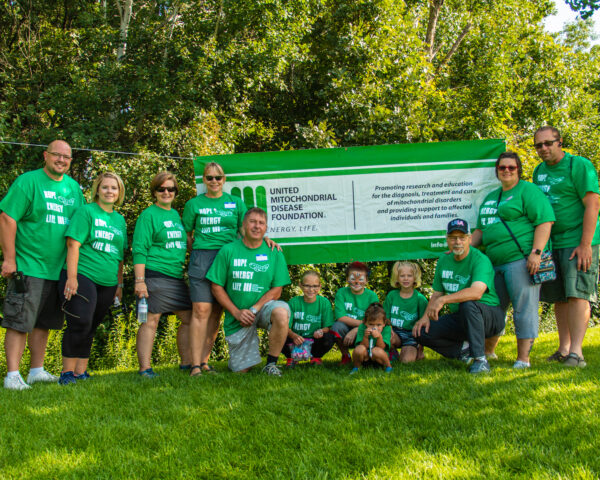It was Denise Schumacher’s son Alex who started her family’s journey with mitochondrial disease. Alex was born in 2003 and right away his parents knew something was off.
“He had rapid heart rate and other symptoms, so he was life flighted to Children’s Minneapolis,” explained Denise.
Alex’s symptoms led his family on a journey to find a diagnosis. The family met with a geneticist at Children’s Minnesota who diagnosed him with the heart condition Wolff-Parkinson-White Syndrome and failure to thrive. It was that geneticist who suggested the family undergo blood testing and biopsies to search for an underlying genetic condition.
The results showed that Alex, Denise and her daughter Madison all had mitochondrial encephalomyopathy, lactic acidosis, and stroke-like episodes, or MELAS.
“It was because of my son that we got our diagnosis,” she said.
MELAS affects several body systems and can begin at any age, but typically begins in childhood. Symptoms can include: muscle pain and weakness, headaches, loss of appetite, vomiting and seizures.
Most people with MELAS also experience stroke-like episodes that can cause migraines, seizures, vision abnormalities and altered consciousness.
Though three family members had MELAS, it appeared differently in each person. 
“My daughter, she thrived. She was very smart, but she had hearing issues like Alex did. She had some fatigue and muscle fatigue,” said Denise. “When Alex was diagnosed, we were told he wouldn’t live through infancy and all we could do was manage his symptoms.”
Alex’s care journey eventually brought the family to see Dr. Bruce Cohen. Alex joined a few research studies to see if any new medication could help him and other patients with his disease.
“He received great care here,” said Denise. “Dr. Cohen really cares about his patients. Even though now that my son has passed, we still have that connection for myself and my daughter.”
Alex lived to age 11 and a half, and his journey has allowed Denise to get the care she needs.
“Alex helped us learn what we were coping and living with. It has helped me better communicate with my other physicians, because I have a lot of digestion issues, migraines. Some of the issues with treatment is that MELAS affects each of us differently,” she said.
To honor her son, other patients with mitochondrial diseases, Denise is involved in a clinical trial at the Mitochondrial Center at Akron Children’s.

Alex Schumacher
The medication involved in the study is being tested to see if it improves patients’ energy levels.
Denise is the only family member involved in this current clinical trial because Madison is attending medical school. Madison’s experience with Alex and her family’s journey with MELAS inspired her to help others with these conditions, Denise said.
“I continue to do this because I see the benefit. We feel like we’re making an impact,” she said. “Even if I’m on the placebo, that’s fine. Maybe what they learn from the study can help somebody someday.”
Since the family’s diagnosis, the Schumachers have become involved with their local chapter of the United Mitochondrial Disease Foundation in Minnesota.

“It really brought awareness to our small community about mitochondrial disease,” she said, adding that Alex was able to educate his classmates about his conditions. “His class attended his funeral and it was packed. I just feel honored to continue doing this.”
For a lot of mitochondrial disease patients, they don’t look outwardly sick, so getting an accurate diagnosis can be challenging. Denise wants others dealing with these conditions to keep fighting.
“Find those doctors who will listen and investigate. That is what made such a difference for us,” she said. “Don’t give up. Connect with the community, connect with UMDF, connect with your local chapter. Because that’s how we got so fortunate to get involved and meet the doctors we met. If wasn’t for everyone who has helped us along the way and then the group here Dr. Cohen and the research nurses Hillary and Josselyn, we wouldn’t be where we are. It’s just been phenomenal.”










